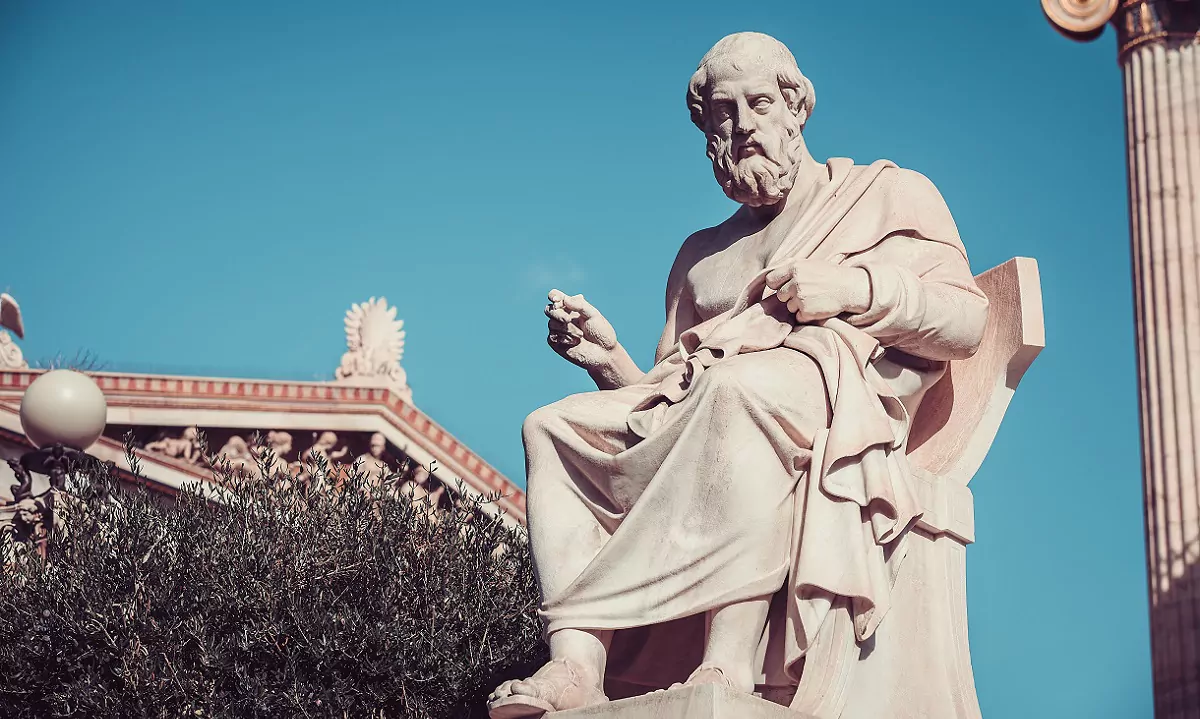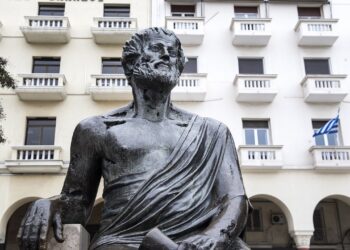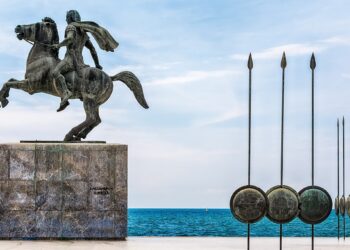Plato’s quotes are not just historical companions. They serve as our inspiration and guidance. The significant contributions of this eminent philosopher, a disciple of Socrates, profoundly shaped not only Ancient Greek philosophy but also left an indelible imprint on Western thought. Plato continues to be revered as a benchmark in envisioning an ideal society – one that is highly appealing, albeit utopian.
Aristotle’s quotes that will change your way of thinking
Plato’s well-kept secrets
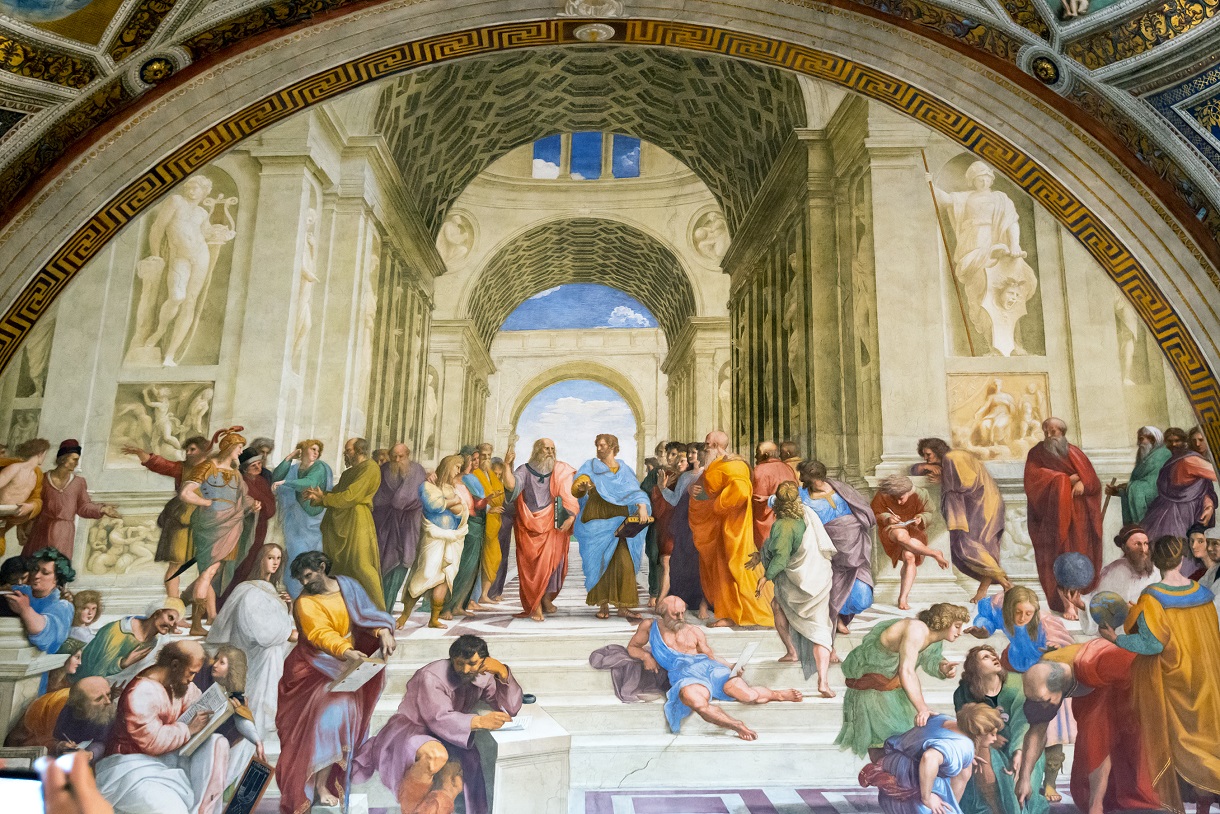
Before delving into the inspiring words of Plato that offer a fresh perspective on life, it’s worth noting that details about his personal life remain largely concealed. His renowned ‘Dialogues’ do not disclose any personal events or situations. All teachings are conveyed through his mentor, Socrates, without Plato expressing any personal stance – neither acceptance nor rejection. The only work which Plato refers is ‘Apology’, which narrates the trial of Socrates, leading up to his mentor’s tragic demise.
For scholars and researchers, the most valuable resource on Plato’s life is the Seventh Epistle, one among thirteen. In this letter, Plato recounts his life, essentially reflecting on his deeds. While the authenticity of these letters has been a subject of debate, research has affirmed that the Seventh, along with the Sixth and Eighth Letters, are genuine. This implies that the statements within them hold substantial significance and reliability.
Plato’s work “The Republic”
One of Plato’s most renowned works is ‘The Republic’ (also known as ‘On Law’). Penned around 380 BC and completed by 374 BC, this seminal work by the Greek philosopher has had a profound impact on philosophy and politics. ‘The Republic’ is the most widely read book in top universities worldwide. This is hardly surprising given that it features Socrates and other distinguished Athenians and foreigners debating the significance of justice, contrasting a virtuous individual with an unjust one, and deliberating on who is ultimately more content. Key existential topics such as the soul’s immortality, youth education, and the tension between philosophy and poetry are addressed in the utopian state that Plato envisions, ‘Gallipoli’, where philosopher-kings reign.
‘The Republic’ is segmented into 10 books. However, this division was not introduced by Plato himself but was later implemented by publishers and scholars. Books 1 to 5 depict the Ideal State, commencing with a discourse on the definition of Justice. In Books 6 and 7, philosophers are deemed the ideal rulers of the State, while Books 8 to 10 explore various forms of government, analyzing their respective merits and demerits.
The prison of Socrates: The cave in the heart of Athens
Plato’s Academy
The Greek philosopher Plato established his Academy around 387 BC, upon his return from his inaugural trip to Sicily. The Academy was a hub for the study of subjects like mathematics, political science, physics, and naturally, philosophy. Many of the era’s philosophers and scientists, including Aristotle and Euclid, were associated with the Academy. It remained operational throughout the Hellenistic period. Interestingly, when the Spartans invaded Athens in 413 BC, they refrained from demolishing the Academy out of respect. Presently, the site is located in the western part of modern Athens, near Lenorman Str. and Athinon Avenue, bordering Kolonos district, Votanikos district, and Sepolia district.
Plato’s quotes that make us better persons
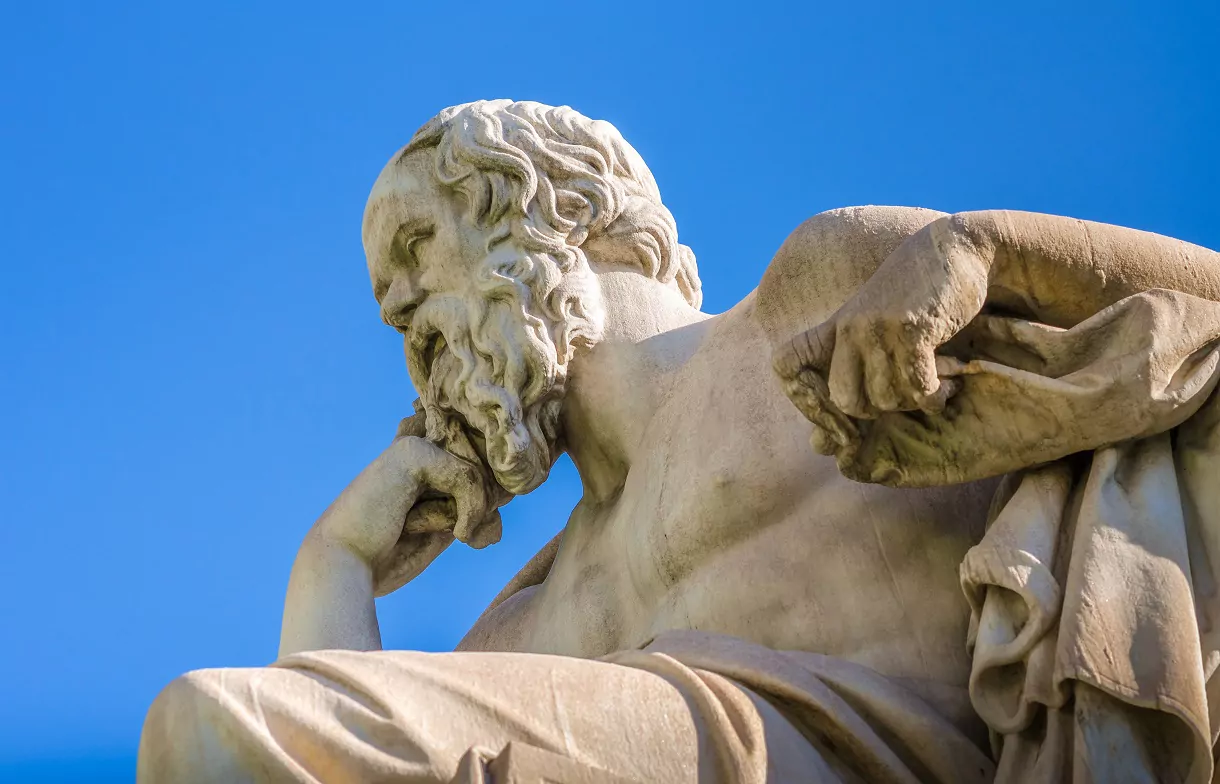
A philosopher of Plato’s stature has shared insights that remain relevant and timeless, even after thousands of years. Here are 21 of Plato’s insights that can help us become better individuals:
The true value lies not in living to acquire more, but in living well
Health is the greatest gift, followed by beauty, and then wealth
Law is merely a reflection of the interests of the powerful
A genuine leader prioritizes the interests of his subjects over his own
One who thinks correctly is superior to countless who don’t
It’s better to suffer wrong than to do wrong
We contemplate ideas, yet we don’t perceive them
A man reflects and judges what he has observed
The value of speech is determined not by the speaker, but by the listener
Excessive freedom seems to lead to extreme bondage
Is the good good because the gods favor it, or do the gods favor it because it’s good?
The onus rests with the one who makes the choice, God is not to blame
God is always and in all ways just
Religion distances itself from both pleasure and grief
All wars are waged for material possessions
Rebellion is the most challenging of all wars
Knowledge engenders happiness
Of all delights, praise is the most gratifying
One should never drink to the point of drunkenness, except during festivities
The soul enters Hades carrying nothing but its learning and cultivation
I believe that death is merely the separation of two entities, namely, the soul from the body
So you know
Plato was 31 when his mentor, Socrates, consumed the hemlock. The Greek philosopher survived for an additional 50 years, passing away at the age of 81 due to natural causes. His legacy and his work have achieved immortality.
Travel to Greece – Google News – Follow us
Quotes from Onassis that Left a Mark in History
Antiparos – The Greek island that was given as a dowry


